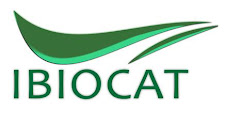
Umberto Boccioni- Visioni simultaneee (Nedersachsisches Landesmuseum Hannover)
“…Astronomical, physical, chemical, and biological science, as also technical and medical science, will be studied only in so far as they can help to free mankind form religious, juridical, or social deceptions, or can serve to promote the well-being of all men and not of any single class.
Only then will science cease to be what is now- on the one hand a system of sophistries needed for the maintenance of the existing worn-out order of society, and on the other hand a shapeless mass of miscellaneous knowledge for the most part good for little or nothing – and become a shapely and organic whole having a definite and reasonable purpose comprehensible to all men, namely, that of bringing to the consciousness of men the truths that flow from the religious perception of our times.
And only then will art, which is always dependent on science, be what it might and should be, an organ co-equally important with science for the life and progress of mankind.
Art is not a pleasure, a solace, an amusement; art is a great matter. Art is an organ of human life transmitting man’s reasonable perception into feeling. In our age the common religious perception of men is the consciousness of the brotherhood of man - we know that the well-being of man lies in union with his fellow-men. True science should indicate the various methods of applying this consciousness of life. Art should transform this perception into feeling.
The task of art is enormous. Through the influence of real art, aided by science, guided by religion, that peaceful co-operation of man which is now maintained by external means, - by our law-courts, police, charitable institutions, factory inspection, and so forth, - should be obtained by man’s free and joyous activity.
Art should cause violence to be set aside.
And it is only art that can accomplish this”.
From: Leo Tolstoy, What Is Art And Essays on Art, READ BOOKS, 2006 (Originally published in 1930) ISBN 1846644674, 9781846644672- pp. 286-287.




